高空飞行器设备舱内电子设备的湍流传热特性研究毕业论文
2020-05-22 21:11:04
摘 要
湍流传热是高空航空飞行器内的重要传热方式。随着大功率的电子器件在设备舱电子系统中的越来越广泛的应用,湍流传热对其温度场的特性的影响变得更加重要。由于航空载具电子系统需要不同工作温度环境,为保证设备的可靠运行,需要对温度进行控制。掌握各种条件状况下舱内内温度范围的预测方法,研究复杂的封闭空间内的湍流传热特性,对航空器热设计具有十分重要的意义。本文以高空航空载具设备舱环境为主要研究背景,在开展不同环境因素和空间结构下设备舱湍流换热特性分析的基础上,分析了尤其是以空气密度变化为主要改变热边界条件设备舱空间内湍流传热耦合换热问题,主要结论包括:通过不同大气压下单热源开口与封闭腔单热源模型的模拟,能够发现相同结构不同大气压下温度分布趋势相近,空气中热量密集区基本集中于各个湍流回流区;初始温度不变,电子设备表面温度高低随着气压增大而减小;多热源封闭腔系统温度分布与单热源系统有着相似规律由于轴流风扇关系,复杂多热源封闭系统中气体节点温度难以到达稳态,设备表面温度慢慢趋于稳态。
通过模拟,为设备舱内电子设备湍流传热特性的分析提供了参考,提出了一些对航空设备舱散热应用方面有一定价值的结论。
关键词:湍流传热;航空器;封闭空间;热分析
Abstract
Turbulent heat transfer is an important heat transfer mode in high altitude aircraft. With the application of high power electronic devices in the electronic system of equipments, the influence of turbulent heat transfer on the characteristics of the temperature field becomes more and more important. As the electronic system needs different working temperature environment, to ensure the reliable operation of the equipment, the need to control the temperature. Master the method of predicting the class Nene temperature range under the various conditions, in a closed space of complex turbulent heat transfer characteristics and to the thermal design of aircraft has very important significance. The high-altitude aircraft carrier equipment cabin environment as the main research background, in the analysis of the thermal characteristics of equipment cabin for turbulent foundation of different environmental factors and spatial structure analysis, especially in air density changes as the main change of thermal boundary conditions of equipment cabin space turbulent convection coupled heat transfer problems, the main conclusions are as follows: through the simulation of different atmospheric heat source and single opening closed cavity single heat source model, can be found in different atmospheric temperature distribution trends are similar, the air heat concentrated area is concentrated in the various turbulent recirculation zone; initial constant temperature, the surface temperature of electronic equipment level decreases with the increase of atmospheric pressure; multi heat source temperature distribution system closed cavity with a single heat source system has a similar rule because of axial flow fan, the temperature of the gas source node complex closed system difficult to Steady state, the device surface temperature gradually tends to steady state.
Through simulation, it provides reference for the analysis of the turbulent heat transfer characteristics of the electronic equipment in the equipment cabin, and puts forward some conclusions about the application of the heat dissipation of the aviation equipment cabin.
Key words: turbulent heat transfer; aircraft; closed space; thermal analysis
目 录
摘 要 I
Abstract II
第一章 绪论 1
1.1 课题研究背景及意义 1
1.2 国内外研究进展 2
1.2.1封闭腔模型对流传热研究 2
1.2.2 二维腔内湍流传热特性研究 2
1.2.3 三维腔内传热特性研究 3
1.3飞行器系统热分析研究 4
1.4本文主要研究内容 5
第二章 湍流模型及应用软件 6
2.1湍流模型 6
2.1.1标准 湍流模型 6
湍流模型 6
2.1.2RNG 模型 7
模型 7
2.1.3 Realizable 模型 7
模型 7
2..2软件介绍 8
2.2.1 CFD软件简介及理论基础 8
2.2.2 ANSYS FLUENT 8
2.3 传热模型与基本原理 8
2.4本章小结 9
第三章 单热源以及多热源系统模拟 10
3.1开口腔设备舱模型 10
3.1.1数理模型 10
3.1.2网格独立性验证 11
3.1.3模型边界参数 12
3.1.4计算结果 13
3.2单体封闭腔系统 18
3.2.1 几何及网格模型 18
3.2.2 边界条件 18
3.2.3计算结果 19
3.3多热源封闭腔系统的热分析 23
3.3.1几何及网格模型 24
3.3.2网格化及独立性验证 24
3.3.3航空器在高空高速环境下的热分析 25
3.3.4航空器在中空高速环境下的热分析 28
第四章 结论 32
参考文献 33
致谢 36
第一章 绪论
1.1 课题研究背景及意义
近年来,伴随着临近空间的开发,高空飞行器的发展十分迅猛,高功率电子设备在高空载具电子设备系统中被越来越多得应用,对高空设备舱温度环境和冷却方式的研究正变得更为重要。一方面,高空低压环境的特殊性对空气运动粘度,密度以及导热率产生影响。另一方面,目前虽然已经发展了很多高功率冷却技术,但是受到成本,运行可靠性及其他技术上的挑战,空气冷却的方式在航空航天热控手段中仍然起着重要作用。高空飞行器中,自然对流传热和湍流传热是重要的的空气冷却方式。湍流相比于自然对流的冷却程度不同。湍流对流换热对电子设备温度环境的形成和冷却方式的选择的影响正变得越来越重要。
温度是影响很多航空仪器设备工作稳定性的关键因素,当温度超过某个值时,设备可能会突然失灵,有的航空器机舱内仪器设备只有处在合适的温度区间内才能正常工作,有的设备有着各自工作温度要求,还有一些电子设备的稳定对所处环境温度波动也有着十分严格的要求,如果温度环境不合适,设备使用寿命会迅速降低。正是由于高空载具内设备系统需要的环境工作温度不一致,,能够预测内部设备的温度场分布对于保证运行稳定和延长使用寿命意义重大 。有资料显示,55%的电子仪器设备的故障是由于温度超过允许值
。有资料显示,55%的电子仪器设备的故障是由于温度超过允许值 ,半导体材料元件温度每升高10k,其平稳运行的可靠性会降低50%左右,反之当温度降低时,故障率会相应减小。
,半导体材料元件温度每升高10k,其平稳运行的可靠性会降低50%左右,反之当温度降低时,故障率会相应减小。
相关图片展示:
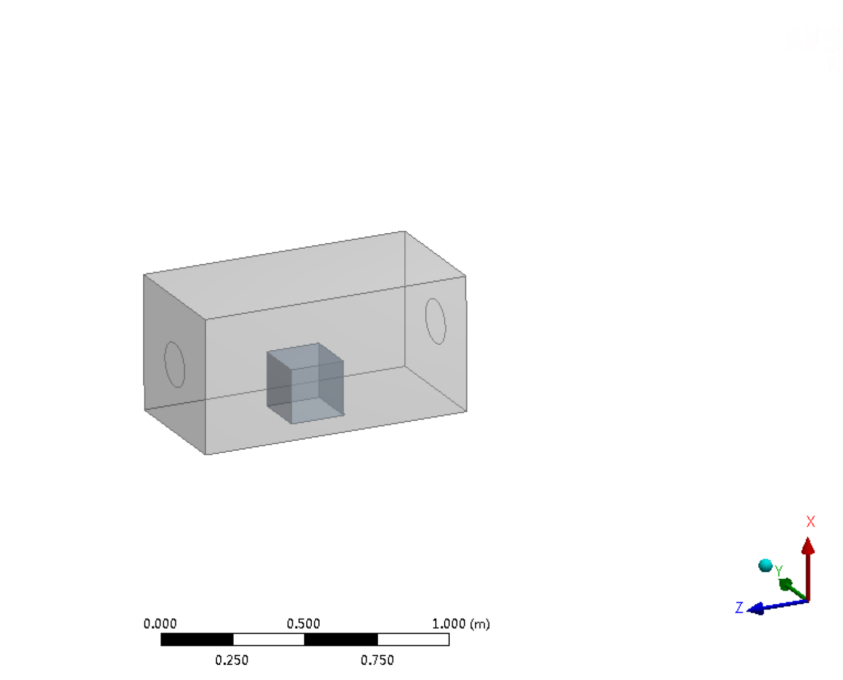
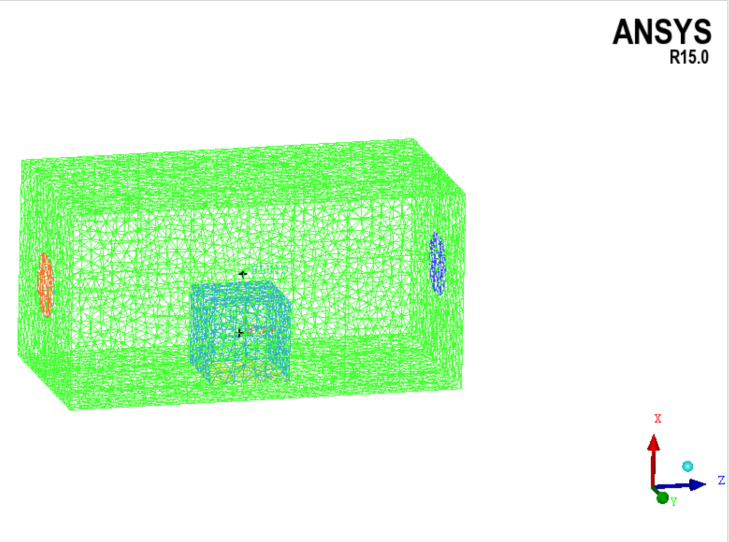
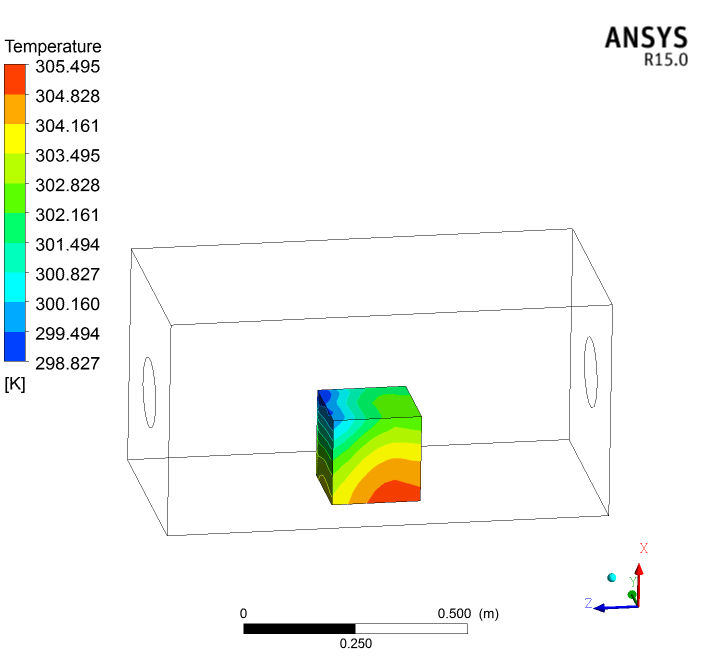
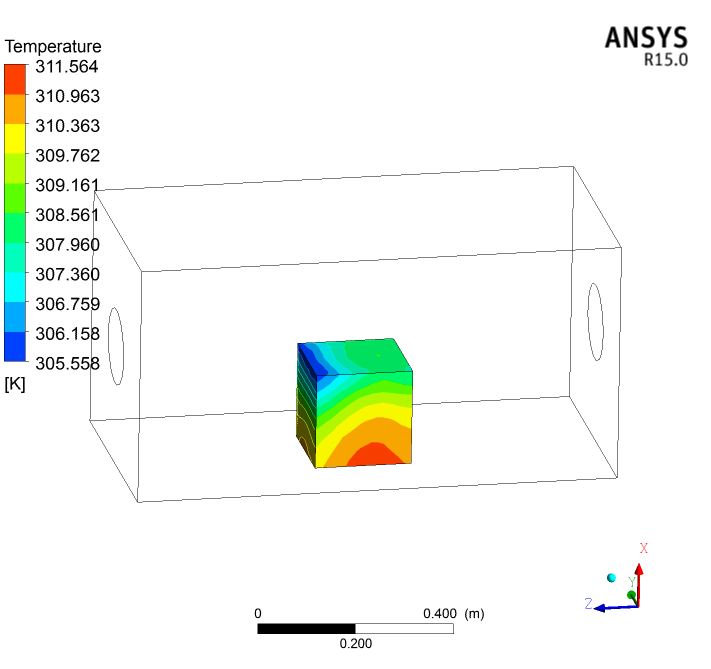
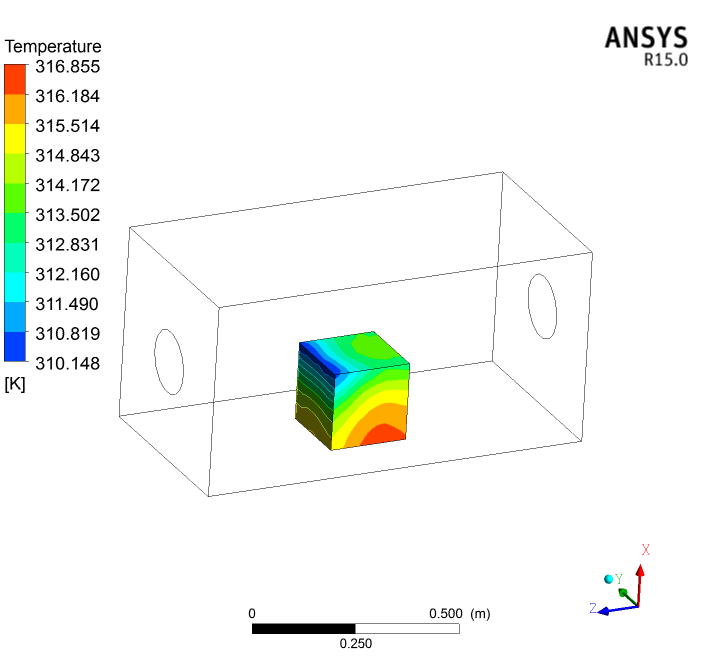
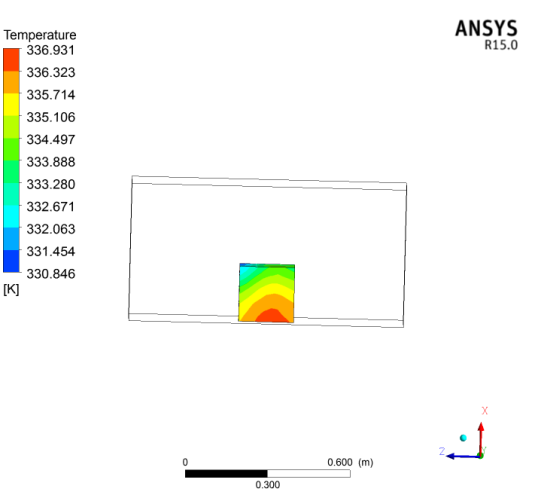
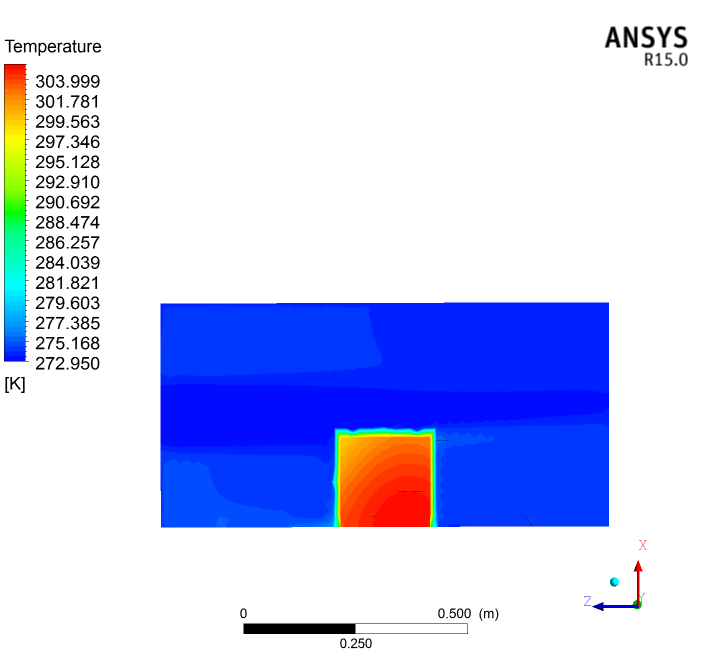
课题毕业论文、开题报告、任务书、外文翻译、程序设计、图纸设计等资料可联系客服协助查找。



